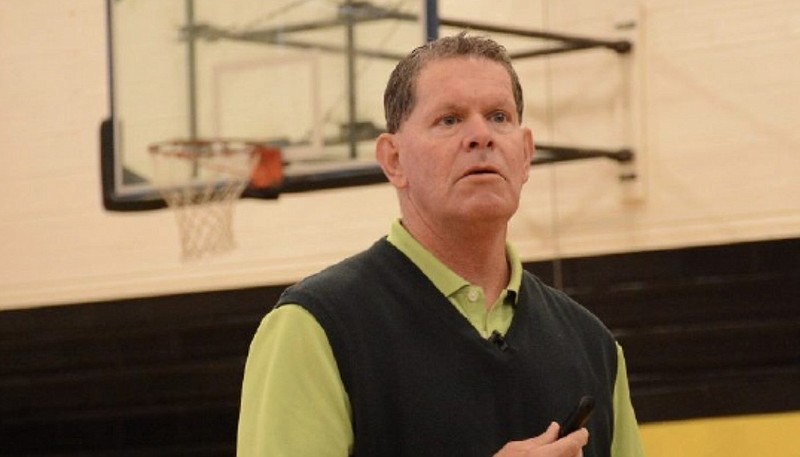At Wednesday's Fulton Rotary Club meeting, Jim Marshall - a substance-use prevention speaker and advocate, educator, teacher and coach - talked about his non-profit organization, Cody's Gift.
Cody's Gift is a mental health first aid and substance-use prevention education group. Marshall has presented at all-school assemblies, teacher professional development days, classes, parent meetings, conferences, hospital lunch and learns, and college wellness center talks.
"I have kids coming up telling me stories about mom and dad or about their own stories," Marshall said. "I've had 10-year-olds from Mexico, Missouri, tell me they have overdosed. I've had 12-year-olds tell me they've tried to commit suicide."
According to statistical data, 30 percent of all teens suffer from clinical depression or PTSD before their high school graduation, and one out of three teens suffer from severe depression. And within the last 10 years, suicide and substance abuse has increased by 70 percent.
Marshall made the point most schools offer driver's education as a way to prepare teens to drive and as a preventative measure to help ensure their safety. But he also noted that every eight minutes someone dies of an overdose.
Marshall believes it is important for teens and young adults to have the knowledge and tools to prevent addiction and overdoses.
"I'm a preventionist," Marshall said. "I want to make sure we get kids and parents this knowledge, so they don't walk through that hurricane."
Marshall lost his son, Cody, 20 years ago to these issues. So he wants to make a point that with the lack of dialogue at home, with the lack of it in school curriculum, kids may be making choices without enough knowledge to know what are healthy coping skills and what are unhealthy coping skills.
"We wonder why they're looking for a rope, we wonder why they're looking for heroin or looking for meth," Marshall said. "There's a lot of young people and young adults who are running to those medications so they don't have to go to counseling, so they don't have to tell mom they have depression because they don't want to be called crazy, they don't want to be called a druggie or be called a junkie or a crackhead. It's much easier to take a pill."
Cody used Xanax.
"Some friend of his told him that the anxiety and depression he had it would take care of it," Marshall said. "One wasn't enough, so he had to have two, then three. He'd build up a tolerance, and he'd take more. He couldn't afford $25 a day for the Xanax he needed and then $30, then $40, so stealing became part of his life from his dad, from his friends.
"Things he's never done, because he developed a chemical disorder we call addiction, it is a disease. He ended up choosing $5 heroin that did the same thing as his $50 of Xanax. And this happens more than you know."
Eighty-five percent of addicts of substance abuse disorders start with a pill addiction, according to data.
At the time, Marshall's son was able to go to different doctors to get several different prescriptions on Xanax because records were not shared between doctors, so they weren't able to see what medications he was already taking. So for the last 10 years, Marshall made it his mission to get a prescription-monitoring program in Missouri.
"We are kind of being force fed medication," Marshall said. "That medication is the answer."
Marshall has spoken at both Westminster College and William Woods University, and the two schools educate their incoming freshmen because they know the stress and pressure college can cause.
With that being said, one out of five college kids take a prescription pill not prescribed to them, with the main one being Adderall because it'll help keep them up all night. Along those lines, putting someone in jail for selling and/or using drugs while more than likely suffering from depression isn't going to fix the problem.
Mostly because those individuals don't get the help needed to treat both their mental and substance abuse disorder, after they get out of jail they're three times more likely to do drugs than they were in the first place.
"It's like having two flat tires and only fixing one," Marshall said. "Try and get on Highway 54 with a flat tire - it won't work."
Marshall's goal is to get schools to start teaching and talking about substance abuse, overdoses, mental health and everything that his organization stands for to help those students before it's too late.
For more information, visit https://codysgift.org/.

